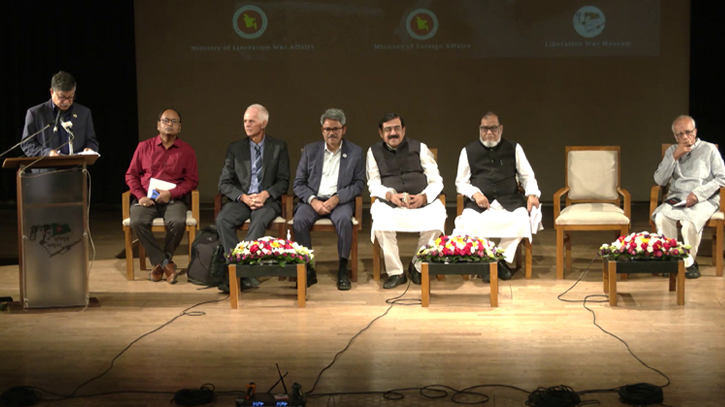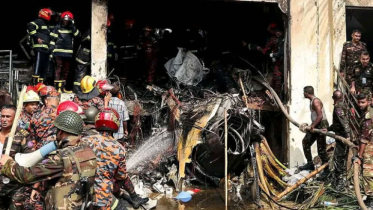
Photo : Collected
Foreign Secretary Masud Bin Momen has reiterated the call of the government of Bangladesh for due international recognition of the worst and the most horrific genocide in the 20th century perpetrated by the Pakistani regime in 1971 in the soil of Bangladesh. "Genocide recognition pays tributes to the martyrs and other victims and brings some solace to the victim families and it reduces the trauma experienced by survivors and victims' families," he said.
He was speaking at an event jointly organized by the Ministry of Foreign Affairs and the Ministry of Liberation War Affairs in collaboration with the Liberation War Museum to commemorate the Bangladesh Genocide Day on 25 March 2024 at the Museum.
He said that the memories and trauma associated with the genocide were still very much vivid in the collective memory of the people of Bangladesh that became a powerful symbol of strength and determination and ability of the people of Bangladesh to overcome any adversity. The heinous strategy of rape, arson, looting and property damage, forced displacements were major features of the genocidal activities by the Pakistani forces backed by the collaborators.
All these features make the prima facie case of 1971 genocide in Bangladesh within the terms of the UN’s 1948 Genocide Convention. The Foreign Secretary highlighted the bold steps taken by the Father of the Nation Bangabandhu Sheikh Mujibur Rahman to seek justice for the genocide victims, including the establishment of the International Crimes Tribunal (ICT) in 1973 that were stymied by subsequent political upheavals.
He said that despite such setbacks, the initiatives of the Government of Prime Minister Sheikh Hasina revitalized the pursuit of justice and the drive of the government to secure an international recognition of the 1971 genocide of Bangladesh. Foreign Secretary expressed gratitude to all the leading international organizations, parliamentarians, scholars, and academia all over the world that recognized the 1971 Bangladesh Genocide and have been working relentlessly for its due international recognition.
He said that Bangladesh was one of the vocal members of the international community to oppose the ongoing genocidal activities in Gaza by the Israeli forces and Bangladesh was also part of the efforts of South Africa in its genocide case filed against Israel at the ICJ under 1948 Genocide Convention. He noted that Bangladesh was not only genocide victims, but also a saviour of genocide victims as the country temporarily sheltered more than 1.2 million Rohingyas who fled persecution and ‘genocide’ in their homeland Myanmar.
Liberation War Affairs Minister AKM Mozammel Haque graced the occasion as the chief guest and Dr. Elisa von Joeden-Forgey, Executive Director of the Lemkin Institute for Genocide Prevention presented the keynote speech on "Politics of Genocide Remembrance". Trustee and Member Secretary of the Lebration War Museum Sara Zaker, and Trustee Mofidul Hoque also spoke at the event.
Messenger/Tareq








